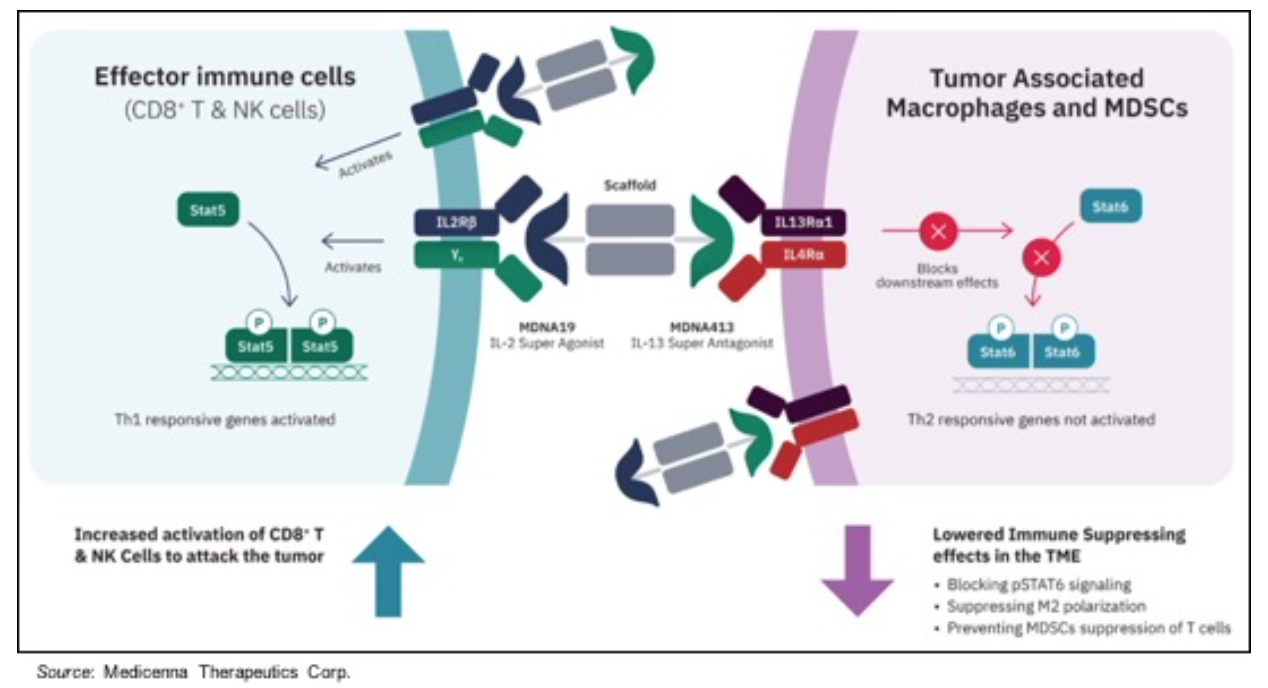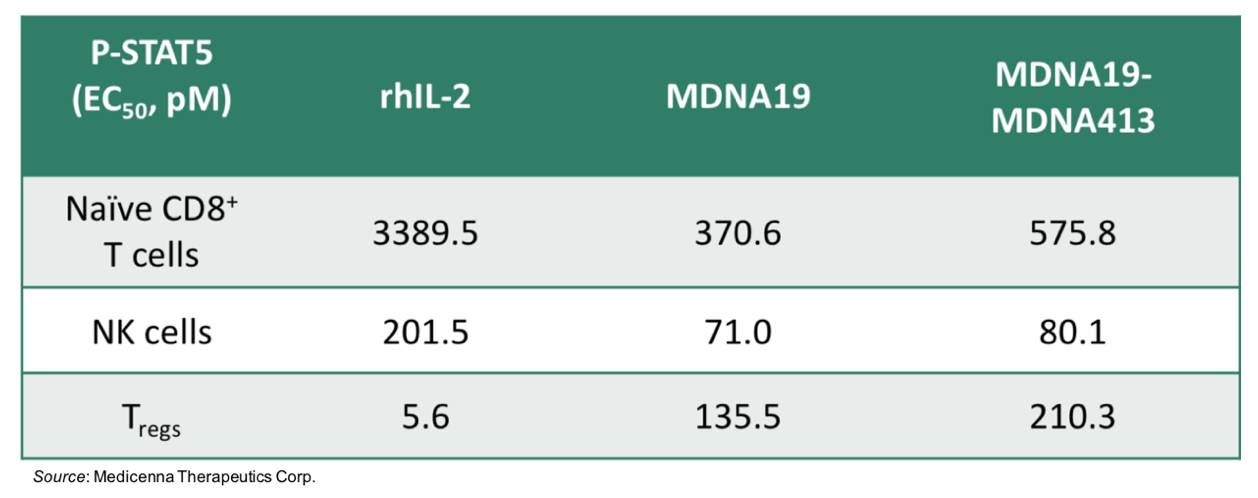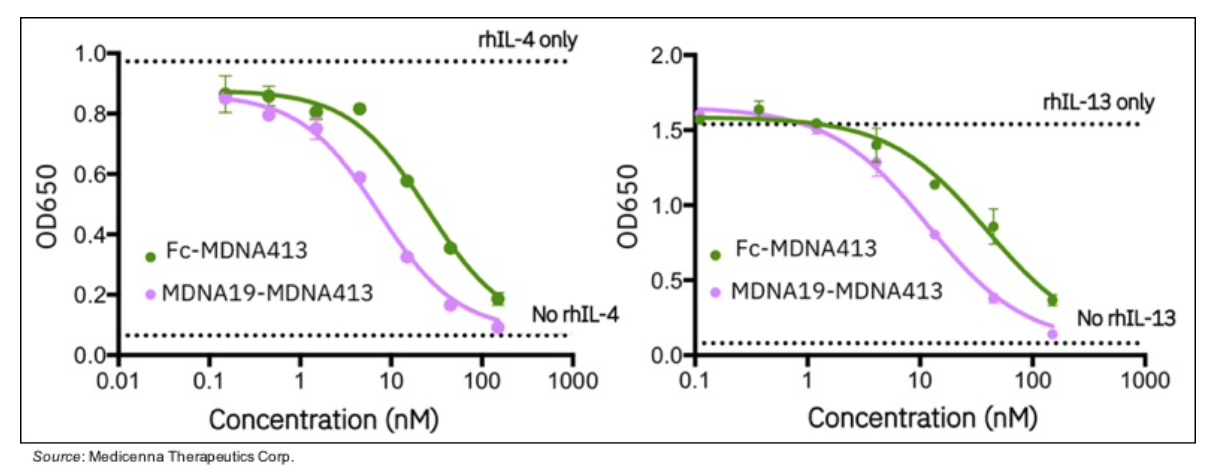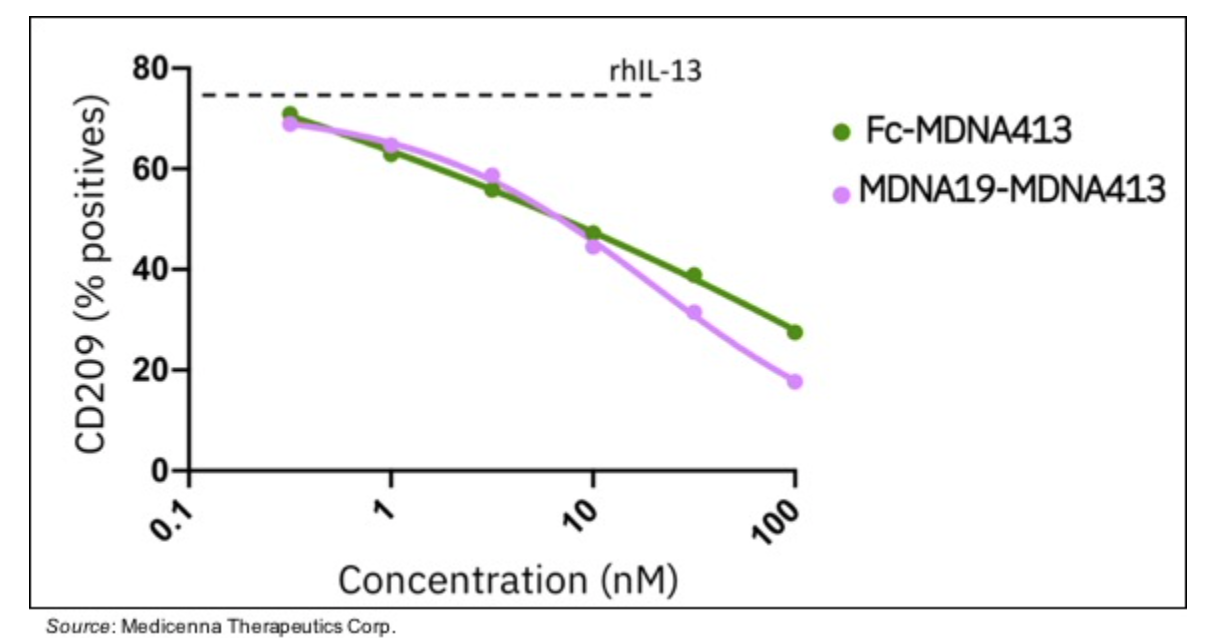By David Bautz, PhD
NASDAQ:MDNA
READ THE FULL MDNA RESEARCH REPORT
Business Update
Preclinical Data for MDNA19-MDNA413 Presented at AACR 2021
On April 12, 2021, Medicenna Therapeutics Corp. (NASDAQ:MDNA) announced the presentation of preclinical data for MDNA19-MDNA413, an IL-2/IL-13 dual specific cytokine derived from the company’s BiSKITs™ (Bi-function SuperKines as ImmunoTherapies) platform. A copy of the poster can be found here.
MDNA19-MDNA413 is designed to target immunologically ‘cold’ tumors through modulation of the tumor microenvironment, which includes low CD8+ and natural killer (NK) cells, high T regulatory cell counts, and increased numbers of immunosuppressive myeloid cells, including both tumor associated macrophages (TAM) and myeloid derived suppressor cells (MDSCs), both of which overexpress the Type 2 IL-4 receptor. The MDNA19 portion of the molecule binds with the intermediate affinity IL-2 receptor (CD122/CD132) to promote activation of CD8+ and NK cells, while the MDNA413 portion binds to the Type 2 IL-4 receptor to prevent TAM and MDSC suppression of T cells.

The following table shows that MDNA19-MDNA413 maintains similar affinity to naïve CD8+ T cells, NK cells, and regulatory T cells as MDNA19, with both of them having higher affinity than recombinant human IL-2 for CD8+ T cells and NK cells and lower affinity for regulatory T cells (as shown through a lower and higher EC50, respectively).

MDNA19-MDNA413 inhibits both IL-4 and IL-13 signaling via the alpha-1 subunit of the Type 2 IL-4 receptor in a similar manner to MDNA413. The following figure shows decreased STAT6 activity (which is a marker for IL-4/IL-13 signaling) with increasing concentrations of MDNA19-MDNA413, which is similar to MDNA413 inhibition.

The decreased IL-13 signaling leads to a decrease in M2a polarization of macrophages. The M2a phenotype is associated with a pro-tumoral environment and influences multiple areas of tumor growth, including cell survival, proliferation, and invasiveness (Najafi et al., 2019). The following figure shows the percentage of CD209 positive cells, which is a marker for M2a macrophages, decreases with increasing concentration of MDNA19-MDNA413 or MDNA413.

Conclusion
The results for MDNA19-MDNA413 are very encouraging and show that Medicenna is building a diverse pipeline of superkine assets. The ability to modulate multiple signaling pathways with enhanced cytokines offers a huge opportunity to target different oncogenic pathways as well as other diseases where immunomodulation could benefit patients.
While work continues on the BiSKITs platform, we anticipate Medicenna initiating a Phase 1/2a clinical trial of MDNA11 in the U.K. in mid-2021, and it is conceivable we could see initial data before the end of 2021. However, MDNA11 represents only the ‘tip of the iceberg’ for the company’s superkine platform and we anxiously await updates throughout the year on additional programs the company will be prioritizing. With no changes to our model the valuation remains at $12 per share.
SUBSCRIBE TO ZACKS SMALL CAP RESEARCH to receive our articles and reports emailed directly to you each morning. Please visit our website for additional information on Zacks SCR.
DISCLOSURE: Zacks SCR has received compensation from the issuer directly, from an investment manager, or from an investor relations consulting firm, engaged by the issuer, for providing research coverage for a period of no less than one year. Research articles, as seen here, are part of the service Zacks provides and Zacks receives quarterly payments totaling a maximum fee of $40,000 annually for these services. Full Disclaimer HERE.